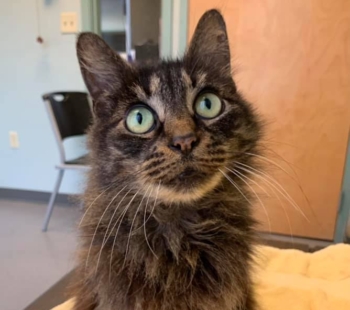
Community Cats
What is a Community Cat?
Community cat is an umbrella definition that includes any un-owned cats. These cats may be feral (unsocialized/fractious) or friendly.
As many of these cats are feral, it would be impossible for us to adopt them to families safely. For this reason, we cannot take in community cats unless the animal is being brought in to be spayed or neutered and then returned to where it came from.
Many community cats are cared for by people in the community who provide food and water. Others thrive without any human intervention, especially in our temperate climate. They live in neighborhoods, shopping centers, commercial properties – anywhere they can find shelter. Whatever the circumstances, the term “community cat” reflects that these cats are suited to be within the community rather than an individual household.
Caring for Community Cats
- Remove any uneaten food within 30 minutes. Leaving food out can attract insects and wildlife.
- Provide fresh water.
- Choose one place to feed and keep it clean. We recommend creating a “feeding area” for all food dishes.
- Keep everything clean.
- Create litter areas using sand. You can build a box with 2’ x 4’s or use a sandbox. A sandbox helps deter cats from relieving themselves in neighborhood gardens. Be sure the litter area is in a quiet, sheltered space and clean it regularly.
- Provide safe shelters. Cats need warm, dry places that are removed from populated areas
Living With Community Cats
Community Cats help control rodents and tend to avoid humans, so most people don’t have any problems. However, if you want to keep these cats off your property try these tips:
- Remove or secure anything that might attract cats, such as pet food or garbage cans.
- Push chopsticks or 10-inch plant stakes into flowerbeds every eight inches.
- Cover exposed dirt areas with large rocks, or place lattice fencing over the soil. You can plant directly in the openings of the lattice. This is also a great way to control weeds!
- Sprinkle orange and lemon peels, pipe tobacco, and coffee grounds on your garden, or spray the area with citronella, eucalyptus, or lemongrass oil.
Resources
The Humane Society for Tacoma & Pierce County supports Trap/Neuter/Return (TNR), which has proven to be the most effective, humane method of reducing community cat populations. Through TNR, these cats are humanely trapped, vaccinated, microchipped, spayed or neutered, ear-tipped, and returned to outdoor homes to live out their lives.
More information on TNR:
Northwest Spay and Neuter Clinic
American Society for the Prevention of Cruelty to Animals (ASPCA)
Finding a trap:


